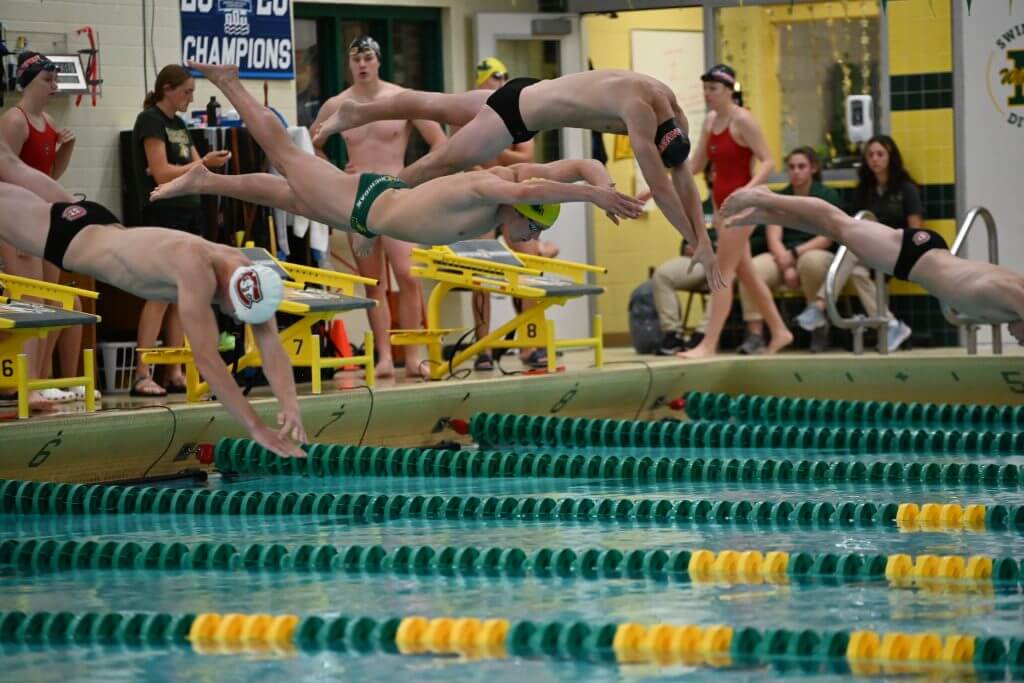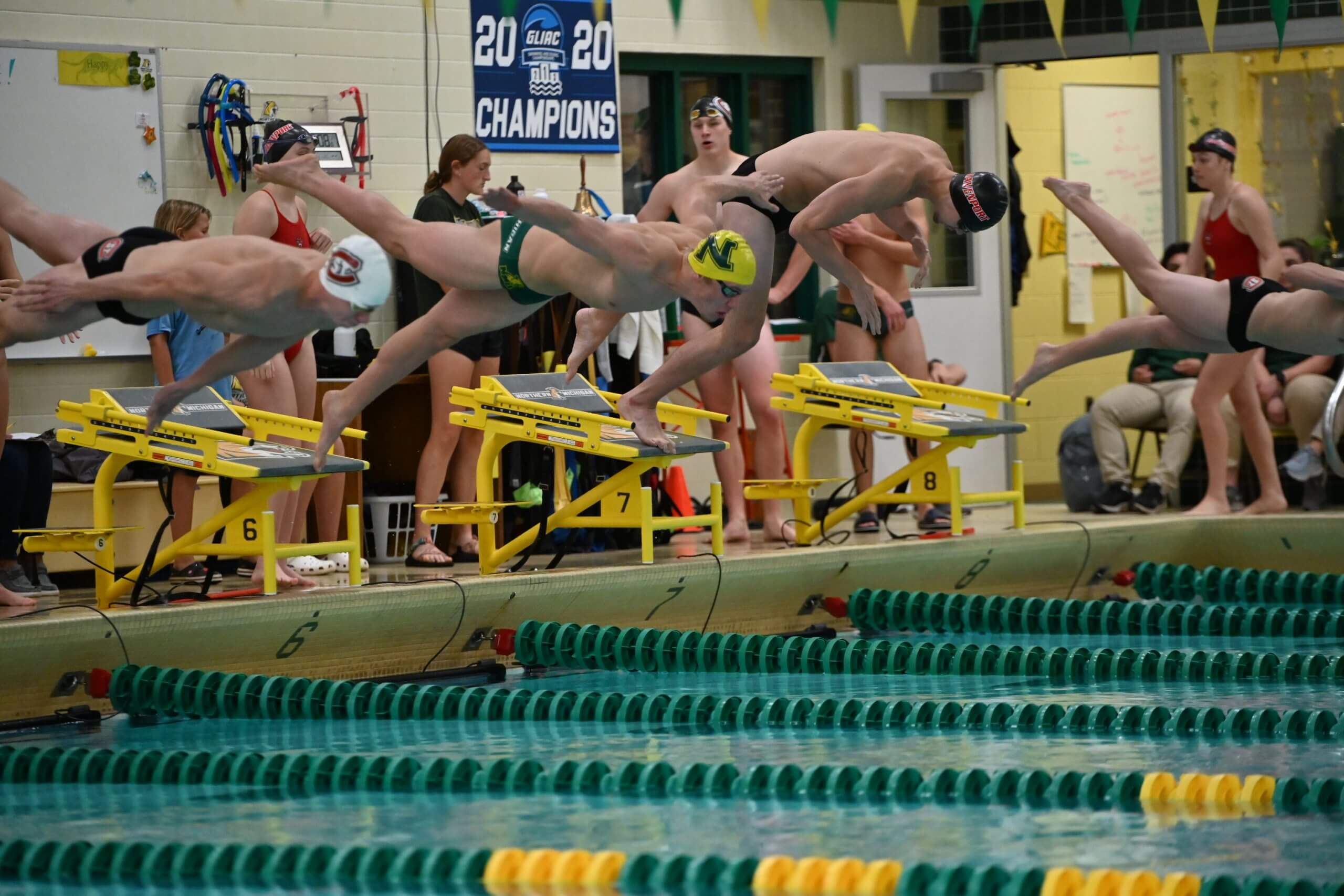Road to Paris: Leo Nolles’ Olympic Dreams Have Taken Him from Uruguay to Northern Michigan

Road to Paris: Leo Nolles’ Olympic Dreams Have Taken Him from Uruguay to Northern Michigan
The road to the Olympics takes swimmers from all over the world through the American college system. From far and wide, countries big and small, a litany of colleges can contribute to the 800 or so Olympic swimmers that’ll converge on Paris this summer. In the six months until that happens, we’re going to shine a light on the journeys of some of those swimmers in a new series of stories on The Road To Paris.
Leo Nolles was about 10 years old when he had to choose his sporting future. Growing up in Maldonado, Uruguay, presented a push and pull.
Swimming was ubiquitous in the coastal town that juts into the South Atlantic Ocean, and Nolles’ parents made sure at a young age that he could swim for safety’s sake. But the country is mad for soccer, having hosted the first World Cup in 1930 and traditionally punched well above its weight, even compared to the superpowers, Brazil and Argentina, it is geographically sandwiched between.
When Nolles reached his early teen years and got more serious about both sports, he had to decide. It turned out to be an easy choice.
“I chose swimming because I wasn’t doing too good in soccer,” he said, “and also because I was at that moment enjoying swimming way more.”
Nolles’ decision has taken him on a path that he hopes will lead to Paris – from Uruguay to Division II Northern Michigan.

Leo Nolles; Photo Courtesy: Northern Michigan Athletics
The sophomore sprinter’s journey arose by happenstance. He finished high school in December 2022 – in the southern hemisphere, summer break runs roughly December to March – and floated his name to colleges in the United States. Intrigued by the balance of academics and athletics, college swimming was a long-term aspiration.
Northern Michigan was one of the first schools to show interest, and he committed sight unseen. His first visit to campus was the following August when he enrolled.
“I didn’t think too much,” Nolles said. “I liked what coach Matt (Williams, associate head coach) said. I looked up where the school was and my father liked the place, so we didn’t think much about it, we just went with it.”
Nolles made a quick impact last season, finishing second in the 100 freestyle at the Great Lakes Intercollegiate Athletic Conference Championships. He tied for fifth in the 50 free, won the B final of the 100 butterfly and helped the Wildcats to two third-place relay results. Those relays each finished 16th at the NCAA Division II Championships.
Nolles’ growth led to his first major international meet last summer, at the World Championships in Fukuoka. He finished 53rd in the 100 free and 55th in the 50 free.
“I’ve always seen the World Championships and those big meets on TV,” he said. “So actually being there in person, it was kind of weird to see the big names of swimming walking around, doing normal stuff, warming up, eating, everything. It was a really good experience in general.”
He’s improved steadily with the training environment at Northern Michigan. He found the adjustment from long-course meters, in which he trained in Uruguay, to short-course yards to his liking. The size of the team and the amount of groups and different types of sets has helped him hone him improve.
“Everything is more specific, which I like,” he said. “And I think I can work better on my strengths.”
Nolles represented Uruguay at the Pan Am Games in the fall, making a pair of B finals. He holds the national record in the 50 back as well as short-course meters marks in the 50 and 100 back.
He’s in a strong position as Paris nears. His best times – 23.10 in the 50 free and 50.79 in the 100 free – leave him shy of Olympic consideration times. But he’s the top active male swimmer among Uruguay athletes in FINA points, which would give him the inside path to a Universality spot.
Sprinter Enzo Martinez, whom Nolles has long looked up to, represented the country at the Tokyo Olympics. The former Florida swimmer retired in 2021. Diego Aranda Pereira was also in Fukuoka and is the most likely contender.
Nolles has proven adaptable, even to the biggest possible hiccup in his change of latitude. The average January high temperature in Maldonado is 71 degrees Fahrenheit (25 degrees Celsius). It drops to 58 F (14 C) in the austral winter peak of July. That’s as opposed to Marquette, Michigan’s 24 degree F high average each January (minus-5 C).
It’s a long way from home, but he’s finding his way.
“A lot of people scared me and told me, ‘oh we get a lot of snow; it gets really, really cold. Be prepared,’” Nolles said. “But for me, it wasn’t that bad. I thought it was going to be really cold, but I managed pretty good. There’s a lot of snow, but for me, it’s alright.”

- EVENT PAGE
- SCHEDULE
- VENUE
- STREAMING INFO
- DAY 1 PRELIMS RESULTS
- DAY 1 FINALS RESULTS
- DAY 2 PRELIMS RESULTS
- DAY 2 FINALS RESULTS
- DAY 3 PRELIMS RESULTS
- DAY 3 FINALS RESULTS
- DAY 4 PRELIMS RESULTS
- DAY 4 FINALS RESULTS
- DAY 5 PRELIMS RESULTS
- DAY 5 FINALS RESULTS
- DAY 6 PRELIMS RESULTS
- DAY 6 FINALS RESULTS
- DAY 7 PRELIMS RESULTS
- DAY 7 FINALS RESULTS
- DAY 8 PRELIMS RESULTS
- DAY 8 FINALS RESULTS
- DAY 9 FINALS RESULTS



